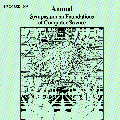We study the Densest Subgraph problem under the additional constraint of differential privacy. In the LEDP (local edge differential privacy) model, introduced recently by Dhulipala et al. [FOCS 2022], we give an $(\epsilon, \delta)$-differentially private algorithm with no multiplicative loss: the loss is purely additive. This is in contrast to every previous private algorithm for densest subgraph (local or centralized), all of which incur some multiplicative loss as well as some additive loss. Moreover, our additive loss matches the best-known previous additive loss (in any version of differential privacy) when $1/\delta$ is at least polynomial in $n$, and in the centralized setting we can strengthen our result to provide better than the best-known additive loss. Additionally, we give a different algorithm that is $\epsilon$-differentially private in the LEDP model which achieves a multiplicative ratio arbitrarily close to $2$, along with an additional additive factor. This improves over the previous multiplicative $4$-approximation in the LEDP model. Finally, we conclude with extensions of our techniques to both the node-weighted and the directed versions of the problem.
翻译:暂无翻译





